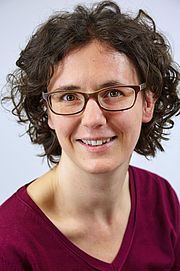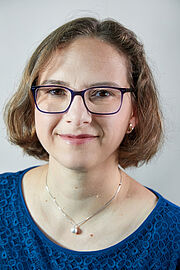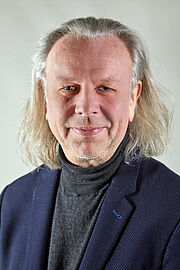The idea of a biosphere reserve covering the Wiesbaden, Rheingau-Taunus and Main-Taunus districts has been under discussion since 2018. On December 13, 2019, hessenARCHÄOLOGIE hosted a special conference on this topic. The community foundation "Unser Land! Rheingau und Taunus", in cooperation with Hochschule Geisenheim University (Center of Excellence, Cultivated Landscapes - KULT), extended an invitation to explore the issue of how our common cultural heritage could be located within a biosphere reserve.
Professor Klaus Werk (Bürgerstiftung Unser Land!) led the afternoon session and made it clear already in his introductory remarks that this kind of biosphere reserve, as a "model region for sustainable development", naturally "stems from its history." Cultural heritage is an important part of its brand identity and has "something of a unique character" for the region between the Rhine and the Taunus mountains, which feature over 7,000 years of human settlement. "You are living in a very unique region and we want to make you aware of it," explained Werk.
Neither bell jar nor native Americans
Dr. Frauke Druckrey, member of the UNESCO national committee for Germany, then went on to explain how extraordinary the region is. She emphasized, among other things, the wide variety of different landscapes and urban centers, some parts of which have already been designated biosphere reserves by UNESCO. It was particularly important to Druckrey to present a clear counterproposal to the fear-laden image of a biosphere reserve as a bell jar - a museumization of a region in which things would no longer change. It is rather a matter of looking at the opportunity of the biosphere reserve as a laboratory for the future, as an "institutionalized platform for negotiating compromises" that will help the region to move forward. Cultural heritage is one of the factors that can help stimulate this development.
Torsten Raab (Rhön biosphere reserve) spoke about how this conviction can work. He explained how not only acceptance, but also enthusiasm for the biosphere reserve evolved in the Rhön region. "We got through to people, the region is behind the biosphere reserve", he said. However, it has not always been easy, he added. Even the term "reserve" initially led to misunderstandings and uncertainty. "We are not native Americans, we are not on show," he continued. The past plays an important role in this context, he believes. "Our roots also go back a long way," says Raab - beginning with the Celts in Milseburg over 2,500 years ago.
The past and what we can do with it
In order to become aware of one's cultural heritage, however, it is often first necessary to know about its legacies. In this connection, Jörn Schultheiß (Hochschule Geisenheim University) presented the "KuLaDig" cultural heritage information system. This system, in which the State Office for the Preservation of Monuments in Hesse is also involved, features a scientifically monitored database with several points of contact, because "we need to know what needs to be protected and developed."
Kjell Schmidt (Regionalpark RheinMain) demonstrated how these well-known objects can then be recreated in a completely practical way. Whether it is a matter of making a previously existing structure visible again through planting or, for example, the Roman Limes through whitewashed posts - there are many ways to skilfully incorporate cultural heritage into regional development. Schmidt believes the biosphere could serve "as a support and catalyst" to bring together the efforts of many individuals to form a greater whole.
Dr. Kai Mückenberger (State Office for the Preservation of Monuments in Hesse, hessenARCHÄOLOGIE) also took a look at the greater picture. The district archaeologist was representing state archaeologist Dr. Udo Recker at the launch of the event and gave an entertaining, yet comprehensive overview of the archaeological findings "between Feldberg and Binger Loch". From the time of the Linear Pottery School onwards, there has been a lively hustle and bustle between the Rhine and Taunus and "where man walks and stands, he makes holes," Mückenberger joked. It is now one of the most important tasks of archaeologists, not only to record the knowledge of this heritage and pass it on to the outside world, but also to create opportunities to make it available to the public.
The topic presented by Wenzel Bratner (State Office for the Preservation of Monuments in Hesse, architectural and art heritage) was also literally rooted in the soil. The head conservation officer is an expert in the preservation of garden monuments and provided a comprehensive overview of how garden preservation and nature conservation can be brought into harmony and positively influence each other, and not just as part of a biosphere reserve.
What natural environment do we want to live in?
For this to happen, however, many municipalities will need to be involved. Volker Diefenbach, Mayor of Heidenrod, brought the discussion back to the municipal level and outlined the possibilities for sustainability. For this to work, however, it is necessary to escape from the confines of the smaller details and approach the project as a whole. After all, it was about nothing less than "a guided opportunity for the future."
Andreas Wennemann (Naturpark Rhein-Taunus) invited the conference participants on a journey from the past to a possible future. From the Big Bang to modern times, he painted pictures in the minds of those present in order to lead them purposefully to a key question: "What will our natural environment look like in 60 years and in what kind of environment do they want to live?" With a clear plea for greater sustainability and respect for our environment, he also advocated looking at it as an opportunity.
Sebastian Macho (Stiftung Kloster Eberbach) concluded the series of lectures with a specific example, namely, Eberbach Monastery. The monastery, which today is also being used as a sustainable conference venue, combines social, ecological and historical commitment in a single location, thus serving as a prime example of how undertakings of this kind can be successful.
Lively exchange of ideas
The event repeatedly opened up to lively discussions and a continuous exchange of ideas, not only in the subsequent final round, but also between the individual sessions. One topic that particularly came to the fore was ecological awareness and the question of how to convince future generations to embrace the idea of a biosphere reserve and to reach those who are not very open-minded towards it. After all, the future of this venture is by no means certain. In summing it up, Diefenbach said: "it's going to be very exciting."
Written by: Lars Görze, State Office for the Preservation of Monuments in Hesse; translated by Ann Brogan





















